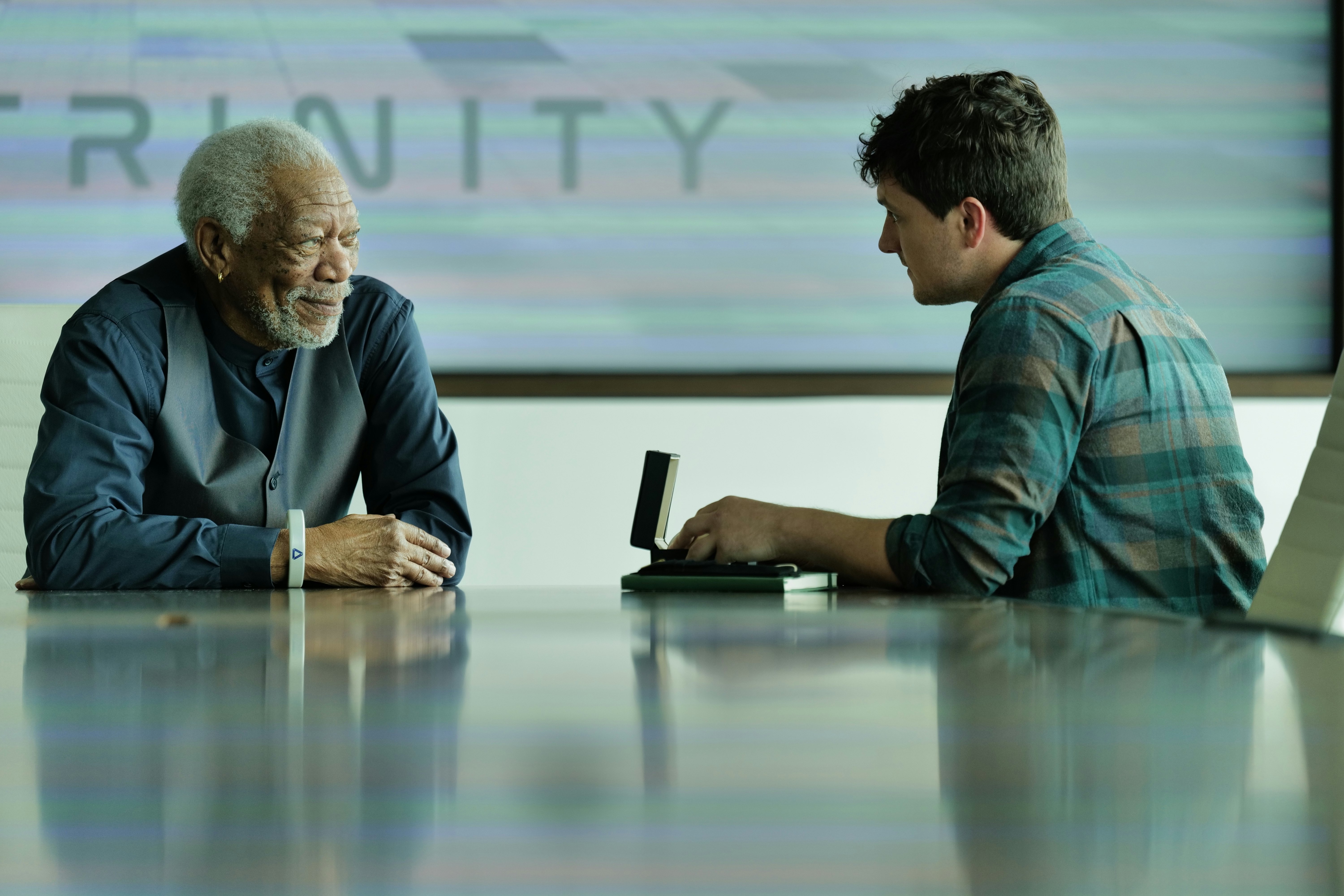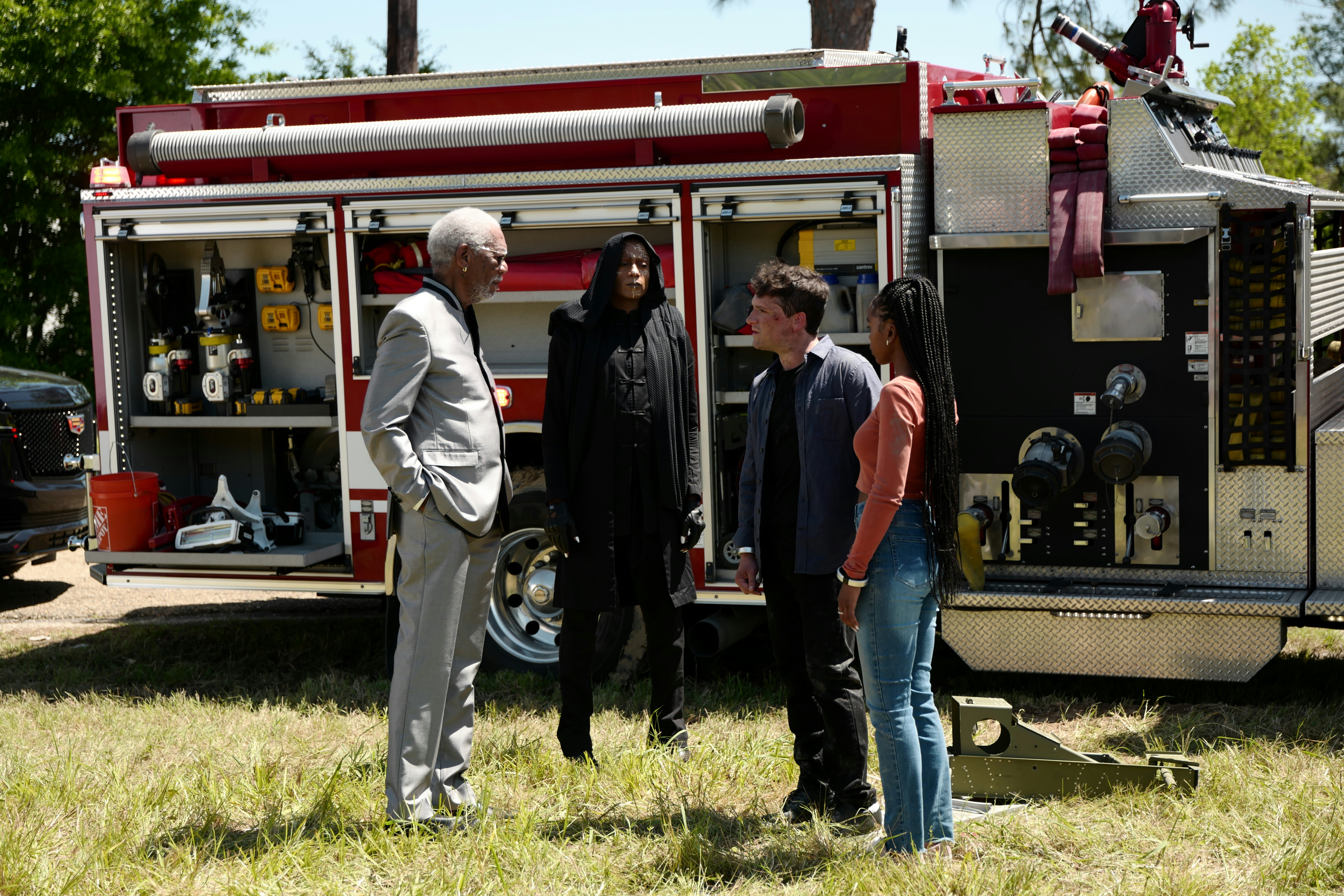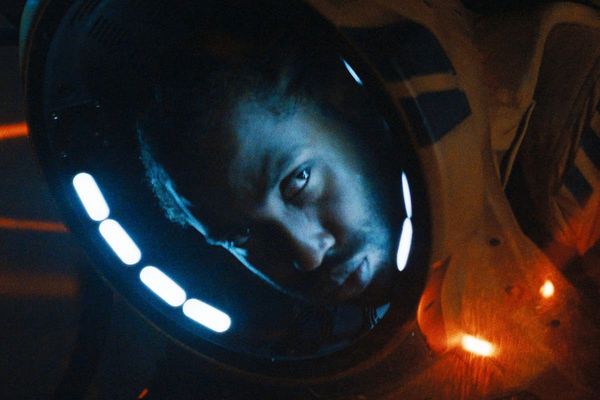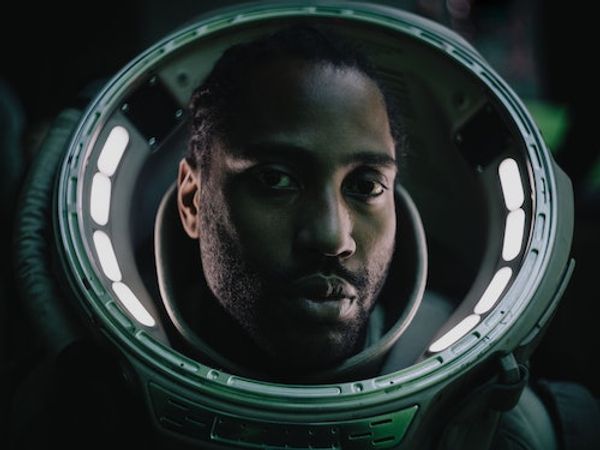
It’s important to try and meet a film on its own terms. In the case of 57 Seconds, the new sci-fi thriller starring Josh Hutcherson and Morgan Freeman, the film was made with such a clearly limited budget that it feels unfair to criticize its obvious cheapness. From its basic TV lighting to its occasional VFX mistakes, the film looks and feels like a Disney Channel Original Movie from the 2000s. That isn’t necessarily a knock against it, so much as it’s a component that’s worth addressing, especially for a film that feels, at times, like a truly independent sci-fi gamble.
In our current era of ballooning blockbuster budgets and industrywide disinterest in original genre properties, making a film like 57 Seconds has never been harder than it is now. In that sense, the movie is a bit of a miracle, though its redeeming qualities begin and end with the spirit behind its creation. Its clear budgetary constraints and elementary style aside, 57 Seconds falls flat because it’s duller than it should be. It’s a film that has some genuinely interesting sci-fi ideas at the center of them, but it fails to explore them as deeply as it could — and arguably should — have.
Based on a story by E.C. Tubb, 57 Seconds revolves around Franklin Fox (Hutcherson), a tech blogger with a personal interest in the potential that advanced AI technology has to cure or mitigate everyday health issues. His obsession with the fusion between the tech and health industries is what leads him to sneak backstage at a conference hosted by Anton Burrell (Freeman), the powerful CEO responsible for the creation of armbands that can track their users’ health habits and assist them in living a healthier lifestyle.
Franklin wants to interview Anton, but when an unexpected attack on the latter brings Hutcherson’s activist blogger even further into his idol’s orbit than he expected, he finds himself in possession of a mysterious ring that has the power to send its wearer 57 seconds back in time. Before long, Franklin has used the ring to not only jumpstart his relationship with the unaware Jala (Lovie Simone) but also turn his entire financial life around. When he’s eventually offered a job by Sig Thorensen (a scene-chewing Greg Germann), one of Anton’s rivals and the executive responsible for a secretly addictive pharmaceutical drug, he concocts a plan to use his time travel abilities to finally expose the billionaire CEO’s many crimes.
What follows is an unexpectedly moralistic story about how quickly money and power can derail someone from their chosen path. Over the course of its runtime, 57 Seconds follows Hutcherson’s Franklin as he uses his quantum abilities for both good and bad and gets drawn deeper and deeper into his rich mark’s toxic lifestyle. For the majority of its story, the film even goes so far as to position Germann’s Sig as the devil on Franklin’s shoulder and Freeman’s Anton as the holier, more angelic figure watching from afar.

57 Seconds’ ideas about the potentially addictive qualities of short-range time travel are interesting, as is its decision to thematically link those ideas to the corrupt nature of America’s pharmaceutical industry. The film never takes its ideas far enough, though. None of the decisions Franklin makes are particularly surprising, nor are many of them heinous or heroic enough to add any dramatic weight to 57 Seconds’ oversized climax. The drama’s script counts director Rusty Cundieff (Tales from the Hood) and Macon Blair (I Don't Feel at Home in This World Anymore) as its co-writers, but the latter’s well-honed, prickly sense of humor is completely absent from 57 Seconds.
There are a few refreshingly brutal bursts of violence scattered throughout the film, including one darkly funny mishap involving a gun and a container of thumbtacks that is the only instance in which Blair’s fingerprints are at all apparent. For the most part, however, the film is dramatically tedious and inert, a fact that only further emphasizes Cundieff’s dreary direction and John Quinn’s lethargic editing. Hutcherson’s performance, meanwhile, is too muted to sell Franklin’s spiritual crisis. The actor’s shockingly bad voice-over narration throughout the film doesn’t help his performance, either.

In the end, 57 Seconds is far too thin and straightforward for its own good. The film has lofty ideas and even loftier ambitions, but neither the drive nor the ability to truly reach as far as it wants. It’s a sci-fi drama full of odd details — like Anton’s inexplicably AI-based henchman (played by Kenneth Kynt Bryan) — and half-finished concepts that only make the shallowness of the film itself all the more apparent. It’s not the kind of unmitigated disaster that’ll necessarily leave you desperate to get the 99 minutes you spent watching it back, but there are far, far better ways to spend your time.










